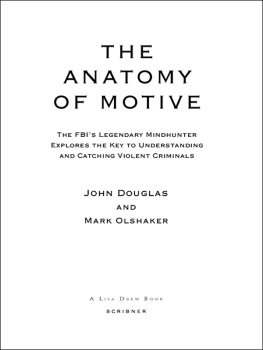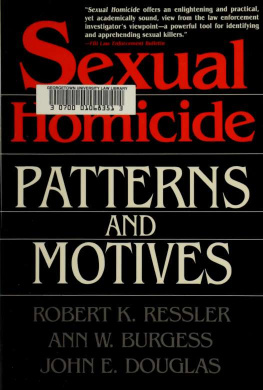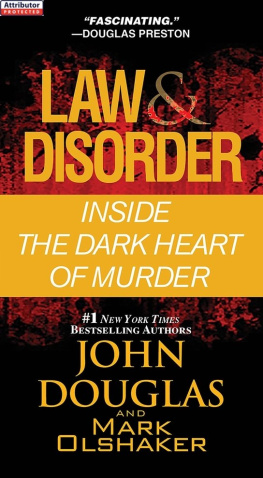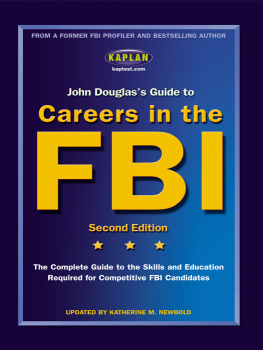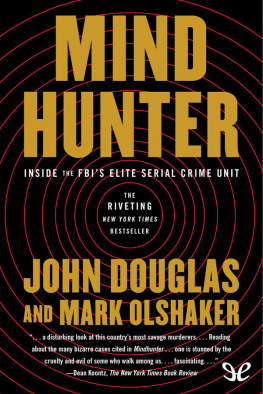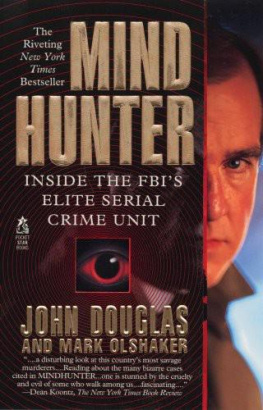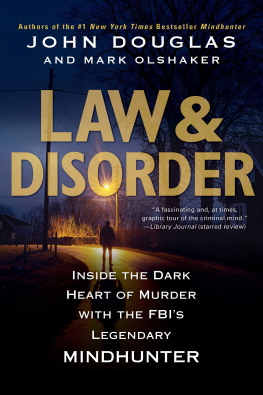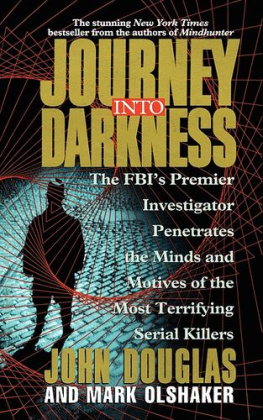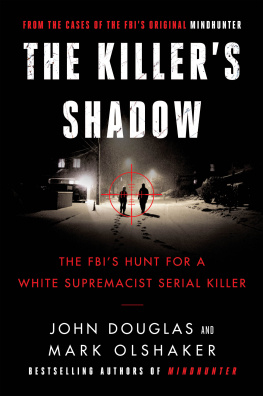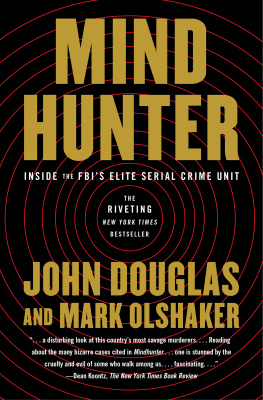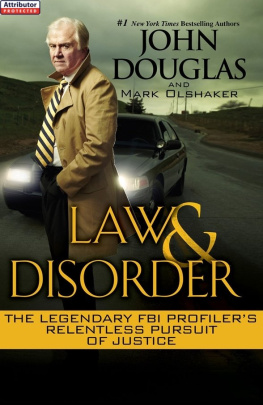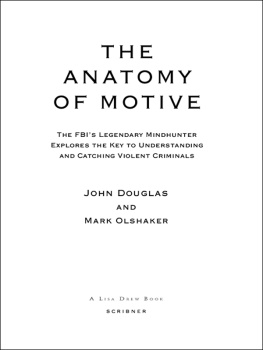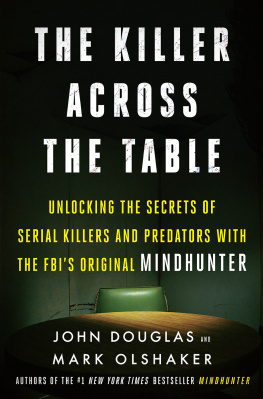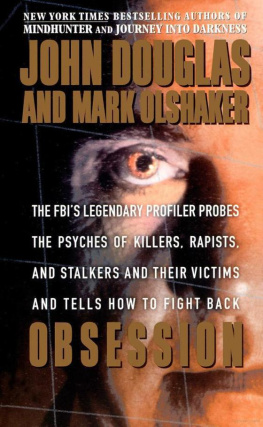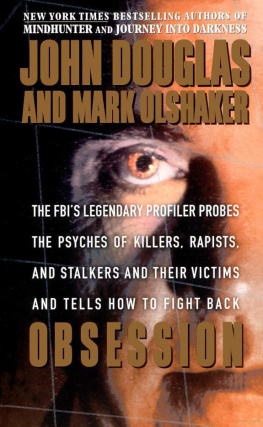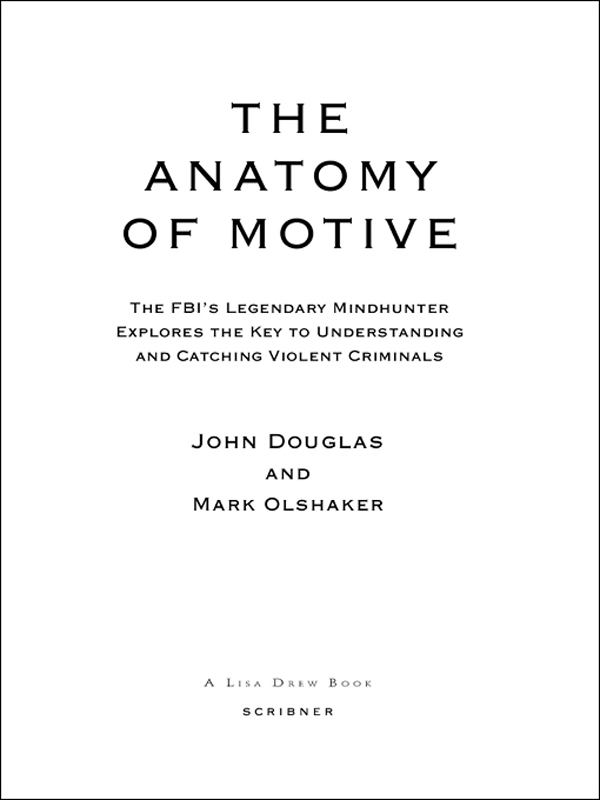PROLOGUE
DUNBLANE
Why did he do it?
I just happen to be in Scotland when I hear about the massacre.
Its the morning of Wednesday, March 13, 1996, and Im in a television studio in Glasgow as part of a promotional tour for my book Mindhunter, at the invitation of our British publisher. For the last hour Ive been interviewed about criminal profiling on the ITV television program This Morning by a very personable team of cohosts named Richard Madeley and Judy Finnigan. How did I begin in the field? they ask. How did I learn what I know, and who did I learn it from? How did my Investigative Support Unit in Quantico, Virginia, go about creating and using a profile of an unknown subject or UNSUB, as he is known in FBI and law enforcement circles? Throughout the tour Ive been really pumped up by the Brits fascination with the subject and the interest theyve shown in my career of studying and hunting killers, rapists, bombersmen whose evil and depraved acts challenge the bounds of the human imagination. Fortunately for the people of the United Kingdom, their society is not nearly as violent as ours in the United States; but they come by their fascination understandably. The first known serial killerJack the Ripperterrorized the East End of London in a grisly mystery thats remained unsolved for more than a hundred years. On this tour, interviewers still ask me if the killer could be profiled and the case closed. I tell them that it would be difficult to come up with the Rippers specific identity at this late date, but that even after a century we can very legitimately profile the UNSUB and say with reasonable assurance the type of individual he was. In fact, I tell them, Ive done it several times in the Ripper murdersboth in training exercises at Quantico and on a live international television broadcast with Peter Ustinov some years ago.
Im back in the TV stations green room when the producer comes in. I assume shes going to thank me for appearing, but when I look at her shes grim, and her voice is urgent.
John, can you come back on the show here?
Ive just done an hourwhat more could they possibly want? Why? I ask. Whats happened?
Theres been a horrible murder in Dunblane.
Id never even heard of the place. It turns out to be a traditionally peaceful village of about 7,300 people, midway between Glasgow and Edinburgh, that goes back to the Middle Ages. Ive got about five minutes before the producer wants me back on, and she quickly hands me the wire service copy.
It says theres been a mass killing of children at the Dunblane Primary School. Reports were frantic and details sketchy, but it appears that a gunman walked into the school at about 9:30 in the morning and began shooting four-, five-, and six-year-olds in the playground. Thered been multiple gunshots, and some of the children had definitely been killed. Others were injured, their teacher fatally wounded. The news reports didnt have a name or age, but apparently the killer had more than one weapon with himhigh-caliber military-type weapons, it seemed.
From these brief news flashes, it sounds like a scene of utter and appalling horror. For a father of threeeven with all Ive seenits difficult not to become sick at the thought of small children being massacred on the playground of their own school.
This is all the information we have when we come back on the air a few minutes later, still reeling from the news. The story is broadcast, and Richard Madeley turns to me and says something like, Well, John, what do we have here?
Well, first of all, youre dealing with a mass murderer, I tell them, then explain how thats different from serial murderers and spree killers. A serial killer is hunting human beings for the sexual thrill it gives him and will do it over and over again, believing he can outwit and outmaneuver the police, never expecting to be caught. The spree killer kills a number of victims at different locations in a short period of hours or days. But a mass killer is playing an endgame strategy. Once he commits himself to his course of action, he does not expect to come out of it alive. He will generally either kill himself after hes made his statement or commit what we call suicide by copforcing a confrontation in which the police or SWAT team will have no choice but to open fire. I expect that later reports will say that this individual died at the scene. These killers are such inadequate people, such losers, that they know they cannot get away and wont give others the satisfaction of controlling them or bringing them to justice.

